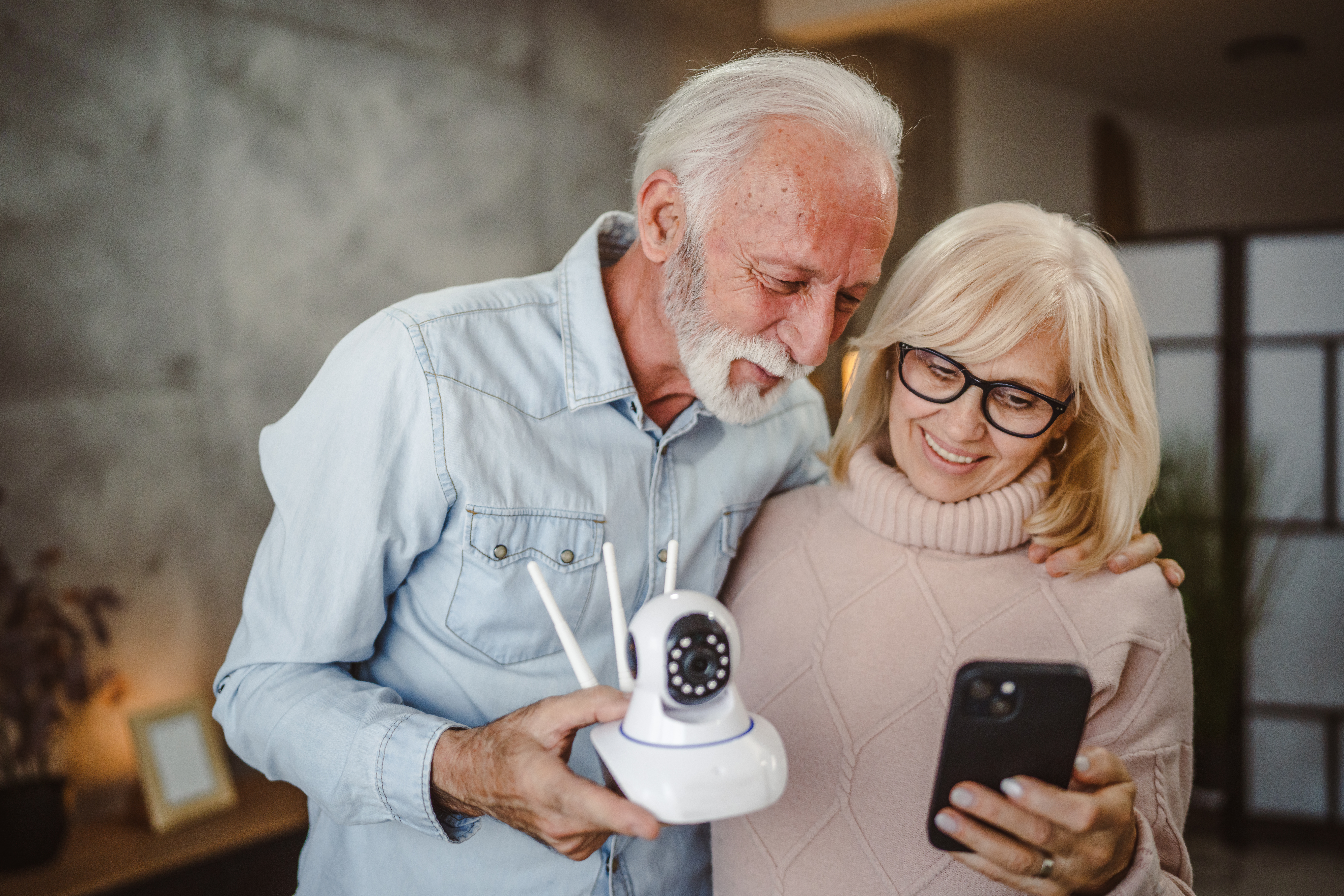It’s OK to talk about sex after age 70

It’s not always easy to talk about sex and intimacy as we age. While starting the dialogue may seem daunting, helpful hints include being direct, using the right body language, and finding relevant conversation starters about sex.
Let’s try an experiment. Say the following words out loud (and please don’t hold back — really annunciate them):
Sex.
Penetration.
Orgasm.
Are you blushing? If so, that’s totally normal. Most of us have been conditioned to view sexuality as (shhh) a hush-hush topic. Textbook words like the ones above, we’re told, are embarrassing and shameful — especially as we age.
At CareScout, we think that’s a bunch of baloney.
The truth is that sex is an intrinsic part of what it means to be a human being — and it absolutely, without-a-shred-of-doubt does not diminish or get more embarrassing as we get older. If anything, many experts believe, it gets better.
As part of our series of articles on intimacy, where we explore all things related to later-in-life intimacy, let’s first tear down the idea that you’re not supposed to talk about your sex life after a certain age. You can talk about it (you should talk about it) and doing so is the first step toward fostering a new, much healthier dialogue for everyone in your life, from your family up to your healthcare providers.
So, what do you say — up for a chat?
Why it’s so weird to talk about sex
“The reason why we have trouble talking about sex as older adults is because we have trouble talking about sex, period,” says Jane Fleishman, PhD, a sex educator and host of the Our Better Half podcast. “This is especially true in America.”
This is primarily rooted in our country’s historically poor sex education programs, she says.
“Most older adults have had no sexuality education. None,” she continues. “That means we have a whole generation of people who haven’t had the right sexual guidance — any sexual guidance — their entire lives.”
This lack of comprehensive sex education at a young age can have drastic snowballing effects as people age, manifesting most notably in a general discomfort around, well, just talking about the “s” word. It’s basically a form of conditioning — and that can be difficult to shake.
(Before we continue, let’s pause and reiterate something: if you do feel squeamish talking about sex, it’s not your fault. This is an endemic issue that’s deeply rooted in our country’s history. The fact that you’re reading this now shows that you’re willing to take a step out of your comfort zone and grow — and that’s great. Take a second to pat yourself on the back.)
OK, so… how do I create a dialogue?
It’s probably safe to expect a few road bumps at the start. Thankfully, there are some ways to make the process smoother.
Let’s say you’re over the age of 70 and want to talk to your partner about an issue you’ve been having in the bedroom.
“This is easier said than done, but — you’ve just got to broach the topic yourself,” says Dr. Fleishman.
If that technique seems blunt, it’s because it is. Think of it like ripping off a Band-Aid: it tears through a brief, but necessary period of discomfort — “Listen, I’d like to talk about something related to our sex life” –– and quickly makes way for the more important conversation.
“Remind yourself that body language really matters,” Dr. Fleishman continues. “If you’re sitting there gritting your teeth while you’re bringing [the topic of sex] up, your partner is going to notice. Try to be as casual as you can be. If you’re comfortable, they will be too.”
Another way to start a conversation, says Kass Mourikis, an Australian-based sexologist, is to reference a relevant article, book, or podcast episode — anything that touches on the subject you want to talk about. Media can serve as a great passive conversation starter to introduce something you might otherwise feel uncomfortable bringing up yourself.
One easy route: share this article with your partner, without context, then ask for their thoughts. It’s a more roundabout way to start a conversation, sure, but it’s still very effective.
Hmm, I'm not sure we want to start with how older adults talk about sex with their kids. Shouldn't we start with how they talk about sex with a sexual partner? As people get older, sex probably will change. It's important to be able to have a conversation with your partner that allows you to try new approaches. Something like that.
Why normalizing the dialogue is so important
Change can only occur when a problem is acknowledged head-on. The topics we explore in our “Still Sexy” series, like “How Intimacy Changes with Age” “Consent in the Age of Dementia,” and “Dating After 70”, are only possible to talk about once we get over the unwarranted embarrassment that comes with talking about sex later in life.
It might seem minor, but this — just being able to comfortably talk about it, in any context — is truly the first domino that needs to drop.
As Kass tells Fashion Journal, a single person braving sex as a topic of conversation has the potential to inspire countless others in their circle to do the same. The more “normal” the topic becomes, the higher the likelihood of related issues being addressed.
One such issue: medical research.
“Doctors have very little experience with sexuality in older adults,” says Dr. Fleishman. “Almost all the medical literature about sex is related to younger adults — maybe mid-life people, but that’s it. Once you pass age 60 there’s almost nothing, except what can go wrong.”
This can lead to additional conditioning, she says, by making adults over a certain age believe there’s no sexual life for them anymore. (Not to mention the potentially helpful medical research around late-life intimacy that’s not being done.)
However, there’s reason to be hopeful that things are changing.
“When I first started doing this work around 2016, I was trying to convince nursing home operators and assisted living leaders that sexuality was a topic they needed to prioritize. They were almost averse to it,” Dr. Fleishman says.
“Now, seven years later, people are asking me to speak at their conferences because they want to know what to do about older adults in their communities having sex. To me, this is the beginning of a glimmer. It’s clear that [the topic of sex in older adults] is on the collective mind.”
Let’s try the experiment from the top of the article again. You ready? This time, say it so loud the neighbors can hear:
SEX.
It’s okay if you’re still blushing. Flipping the dialogue on a long-taboo topic isn’t something that happens overnight. But with your eyes pointed in the right direction, even the tiniest of steps forward can be monumental.
Much like perfecting the act of sex itself, it just takes a little practice.
Find care that understands you
It’s important to talk about and prioritize your well-being at any age. Search the CareScout Quality Network to find quality care options that support you.






